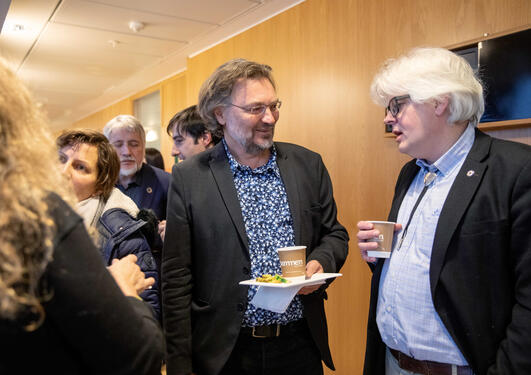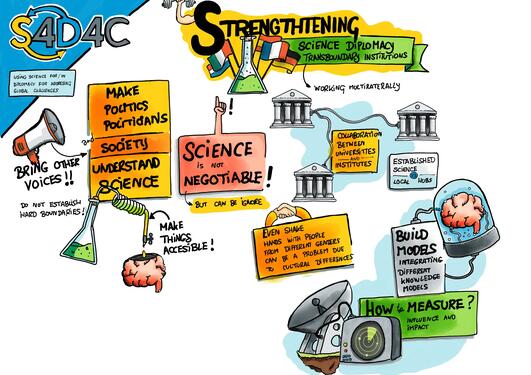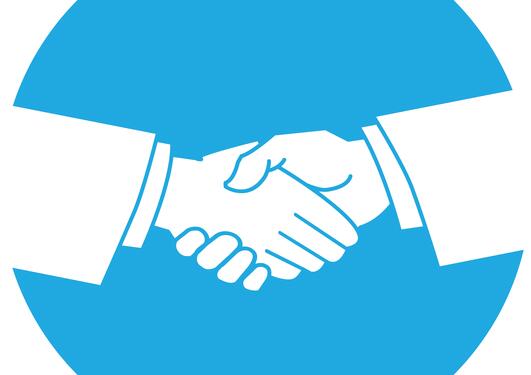EU puts science diplomacy on the agenda
The Norway-EU Science Diplomacy Network had a strong presence at the European Science Diplomacy Conference, which took place in Madrid in December 2023.

Main content
As the head of the Norway-EU Science Diplomacy Network, what are your immediate thoughts on this inaugural European Science Diplomacy Conference?
“The first European Conference on Science Diplomacy organized by the Spanish EU Presidency illustrates the networks of academia, member states and European institutions for shaping and making policy. The conference organization by FECYT, “the Spanish Foundation for Science and Technology Foundation” shows how an EU member state and its authorities work during an EU presidency,” says Professor Rasmus Gjedssø Bertelsen from UiT – the Arctic University of Norway.
Giving Norway a seat at the table
Why was participation from members of the Norway-EU Science Diplomacy Network members important and how do you think this may benefit Norway’s engagement in European science diplomacy?
“It is important for insiders to the EU and even more outsiders as European Economic Area member state Norway to understand and participate in such EU processes and presidencies. The UiT and UiB participation in this conference addresses the goals of the Norway-EU Science Diplomacy Network and the Research Council of Norway’s FORSTERK grant supporting the Network of bringing together Norwegian science diplomacy research and practice with EU counter parts at the highest levels. Horizon 2020 gave UiT the opportunity to participate in the Horizon 2020 project Inventing a shared Science Diplomacy for Europe (InsSciDE), where the Network brings UiB and the Arctic Frontiers conference into EU science diplomacy research and practice. Norwegian Horizon Europe participation is important for access to EU research and policy, and FORSTERK is important to amplify this participation and access,” he says.
An outspoken voice from the north
You were one of the few vocally critical or outspoken voices at the conference, addressing geopolitical issues and in particular questioning the way the west (or global north) talks to the rest (or global south). In what way should the science diplomacy community deal with this issue?
“If only for common courtesy, you talk with people rather than to them. Humankind is close to 8 billion people rising to 10 billion people, where the “West” or “Global North” is a 1+ billion. The “Rest” naturally strives for economic development and rising welfare. This development must be based on sustainable development or will contribute to climate, biodiversity, etc. calamity. Especially STEM global science diplomacy will be central in that global sustainable development. A rough equation of relative international political power is population times economic development times science and technology, which shows the ongoing relative power transition from West to the Rest with global economic, science and technology developments,” says Gjedssø Bertelsen and continues.
“This power transition will entail changes to global governance. Especially social sciences and humanities global science diplomacy intellectually underpin the global dialogues at the basis of evolving global governance. The West spends many resources on dialogues within the European and Transatlantic space. The “West” or “Global North” needs to invest more on global dialogues for a deeper mutual insight and shared understanding despite possibly sharply diverging interests. Groupthink in bubbles can lead to highly undesired policy outcomes.”
Strong Bergen presence in Madrid
The Norway-EU Science Diplomacy Network was also represented with two participants from the University of Bergen, one of which was oceanographer João Bettencourt from the Geophysical Institute and part of the innovative EU-funded SEAS postdoctoral fellowship programme.
What were your immediate thoughts after participating in the first European Science Diplomacy Conference?
“My first thought is that the Conference was a success, highlighting the legacy of European Science Diplomacy initiatives and the growing expertise within this field and opening the way to the establishment of a European framework for science diplomacy. I also noted the will to establish a Science Diplomacy epistemic community in Europe, dedicated to enhancing expertise in this field through interdisciplinary research and training. On the other hand, I was left with the impression that we need to bring the scientific and diplomatic communities closer by creating dedicated interaction spaces for scientists and diplomats,” says Bettencourt.
In what way do you think that engaging with European science diplomacy can benefit your research, early career ocean professional (ECOPs) and the SEAS programme?
“ECOPs are faced with a very different professional landscape today. European science diplomacy can offer new career opportunities for ECOPs, presenting avenues beyond academia. For those in academia, it provides a platform to address global challenges and connect with society. Given the objectives, the breadth of topics and the profiles of the fellows of the SEAS programme, I think that engaging with EU science diplomacy is highly relevant to the programme,” says Bettencourt stressing the benefits for the University of Bergen at large and building stronger partnerships in science diplomacy by attending conferences such as this.
The Madrid Declaration revisited
The conference was successfully organised by the Fundación Española para la Ciencia y la Tecnología – FECYT (Spanish Foundation for Science and Technology), which is a public nonprofit organisation that promotes Spanish science and technology.
In December 2018, the Horizon 2020 project S4D4C organised a European Science Diplomacy Conference, also in Madrid, which played a pivotal role in laying the foundation for collaboration among various institutions, providing a comprehensive diagnosis of the European landscape in scientific diplomacy. How did this precursor to the December 2023 Conference shape European science diplomacy?
“Through the Madrid Declaration on scientific diplomacy, it contributed significantly to identifying a shared vision, objectives, and principles for European engagement in this field. The event marked a crucial step towards fostering unity and coherence in the European approach to science diplomacy,” says Ana Elorza Moreno, who is Science Advice and Diplomacy Coordinator at FECYT. She organised the December 2023 conference with her colleagues Izaskun Lacunza Aguirrebengoa and Leire Leguina Casas.
Developing a robust framework
How would you compare the planning and organising of the 2023 European Science Diplomacy Conference with the actual outcome of the conference?
“It is evident that the planning and organization have evolved to reflect a more mature and action-oriented stage. The collaboration between European institutions and member states has resulted in the development of a robust framework that goes beyond theoretical discussions. This framework now outlines concrete actions across four key pillars, signalling a shift from conceptualization to implementation,” she says before elaborating:
“The first conference served as a diagnostic tool, helping to understand the challenges and opportunities in European science diplomacy, while the recent conference demonstrates a collective commitment to translating that understanding into tangible initiatives. The progression from diagnosis to action is a testament to the effectiveness of the initial planning and organizing efforts.”
Accomplishment and optimism
How would you describe your feelings after wrapping up this successful event?
“There is a sense of accomplishment and optimism after wrapping up this successful event. Witnessing the transition from shaping a vision to implementing practical measures is gratifying. The fact that the conference has moved beyond rhetoric to establish a framework for actionable steps indicates a shared dedication among participants to advance European science diplomacy. It is an exciting time, and the success of the conference instils confidence in the collective ability to address global challenges through science, diplomacy, and collaborative action,” she says.
Strengthening the EU Science Diplomacy Alliance
The FECYT team is currently chair of the EU Science Diplomacy Alliance (2023-2024). In what way has the conference contributed to enhancing the role of the Alliance as the EU sets out to develop a European framework for science diplomacy?
“The conference has played a crucial role in enhancing the standing and influence of the Alliance in several key ways. Firstly, the Alliance has been a hub throughout this process by contributing invaluable knowledge, resources, and inspiration to shape the new European framework for science diplomacy. Its expertise and collaborative efforts have proven essential in navigating the complexities of science diplomacy and ensuring that the emerging framework is robust, comprehensive, and reflective of the diverse needs and interests of EU member states,” says Moreno.
“And, secondly, the conference provided a unique platform for the EU Science Diplomacy Alliance to showcase its substantial contribution to the ongoing development of the European framework. By actively participating in and influencing discussions at the conference, the Alliance has been able to highlight its role in shaping the narrative and driving progress in science diplomacy at the European level.”
A key player in Europe
She believes that the visibility garnered during the conference is crucial as it reinforces the Alliance's importance and expertise in the broader context of European science diplomacy.
“This recognition is likely to strengthen the Alliance's position as a key player in the implementation and evolution of the European framework for science diplomacy,” says Ana Elorza Moreno and looking forward to the challenges and opportunities ahead.



